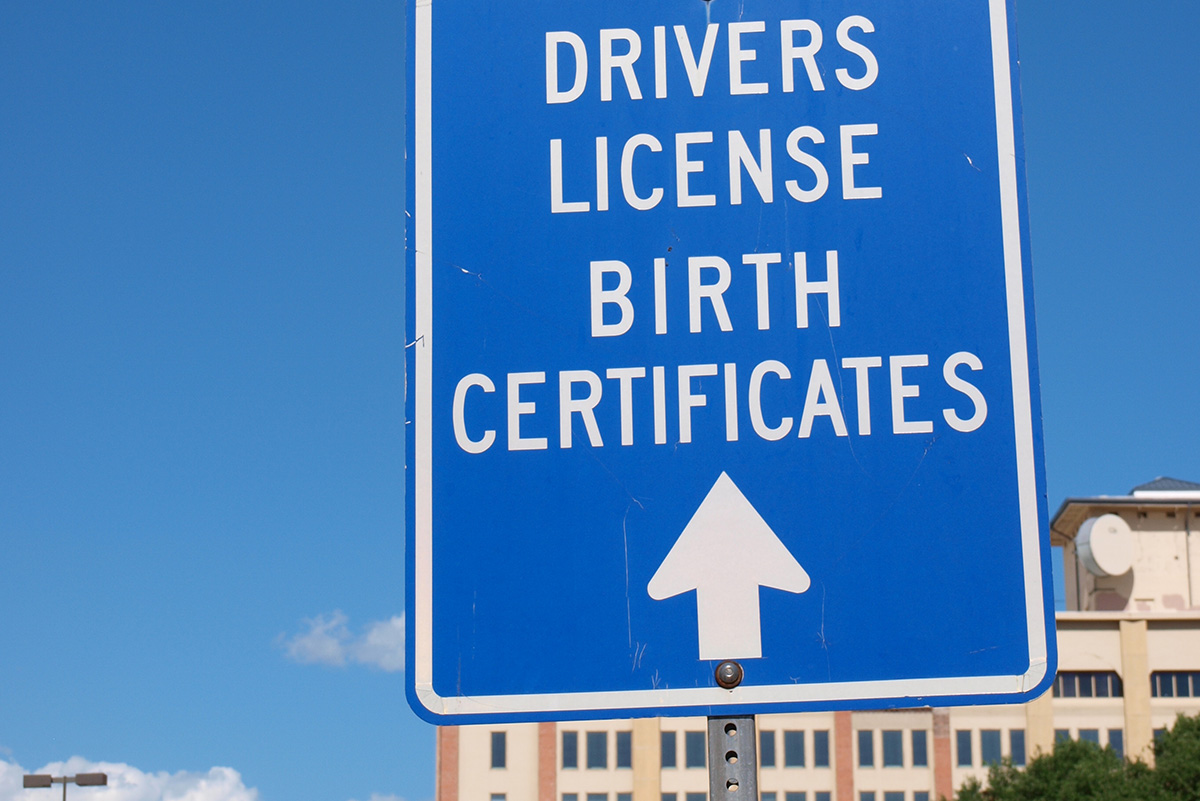Opinions
A tribute to our LGBTQ bars
From Pulse to Club Q, these spaces are sacred

(Editor’s note: I wrote this piece in 2016 after traveling to Orlando to cover the Pulse massacre. Sadly, its message is newly relevant today after the horrific events in Colorado Springs.)
ORLANDO, Fla. — The world watched in horror this week as the proudly resilient LGBT community here coped with unthinkable tragedy.
Sadly, our community has a lot of experience with such things.
From the AIDS crisis in which we fought an indifferent government and hostile neighbors. To an untold number of previous attacks on our bars and clubs, including the 1973 firebombing of the UpStairs Lounge in New Orleans that killed 32 gay men. To enduring the playground taunts and everyday slurs that go along with being “different” in this country.
We were horrified, too, about what happened at Pulse, though not as shocked as our straight counterparts. They will never know what it’s like to walk through life with a permanent target on your back. To pause before each touch; to hesitate before exchanging a hug or kiss with a partner or spouse. To calculate before coming out at work. To endure the judgmental stares when checking in at a hotel or booking a restaurant reservation on Valentine’s Day. To walk around the block, scanning the scene before mustering the nerve to walk into a gay bar. To be insulted, mocked, beaten up just for loving someone of the same sex. We’ve all been there.
So much has been written in recent years about this “post-gay” world in which we supposedly live. A world in which there’s no need for LGBT-identified spaces like bars, clubs, coffee shops, bookstores and, yes, newspapers, because we’re “integrated” and “accepted” now.
What happened in Orlando is a heartbreaking reminder that there’s no such thing as “post-gay,” and that our spaces are sacred. Where outsiders see only a bar or club, we see a community center or the place where we formed our closest friendships or met our significant others. Our bars and clubs have played a heroic role in supporting the community, serving as gathering places in times of triumph and tragedy and helping to raise countless dollars to fund our causes, to fight HIV, to aid our own. When the government turned its back, the first dollars raised to fight AIDS came from the bar and club scene.
The attack in Orlando was an attack on all of us because there’s a Pulse in every city in this country. A place where we can let our guard down, be ourselves, embrace our friends and kiss our partners openly. We need those places because regardless of whether you live in Dupont Circle or rural Alabama, there is a risk in engaging in public displays of affection if you’re LGBT.
A look at the public response to the Orlando massacre reveals just how much work lies ahead. The Florida governor has tried to erase LGBT identity from the attack. We can’t even get validation in death in some quarters. The lieutenant governor of Texas tweeted homophobic Bible verses on the morning of the attack yet somehow still has a job. Last week, before the attack, Rep. Rick Allen (R-Ga.) read a Bible verse on the U.S. House floor that calls for the death of gay people. Shortly after, the House voted overwhelmingly to reject a spending bill that included discrimination protections for LGBT workers.
Even those Republicans who have issued milquetoast statements offering “thoughts and prayers” are left to reconcile those sentiments with their own voting records hostile to LGBT causes. The presumptive GOP nominee for president, whose name I can’t bear to include in a tribute to Orlando, claims to care about what happened, yet has pledged to nominate Supreme Court justices committed to overturning the marriage equality ruling.
Hillary Clinton is right — this isn’t the time for politics. As we struggle with how to respond to the massacre and to those who would demonize and discriminate against us and cast us back into the closet, we should resist the urge to lash out and respond simply with love.
It’s been humbling to be here in Orlando this week, watching members of our community cope with such grace, dignity and determination. They didn’t shut down the community center in fear, instead they opened the doors wide to all while working tirelessly to raise money for the victims, collect donations of water and supplies for blood centers overwhelmed by volunteers, negotiate deals with airlines to fly loved ones to town for unexpected funerals and more.
One of the remarkable people I’ve met here this week, Pastor Brei, said it best:
“Have faith and believe that evil and hate can be eradicated one person at a time. How do you treat someone? How do you embrace someone who treats you wrong? We all bleed, laugh, hope and have great victories and major defeats. And so, you know me, even if you don’t know my name — I’m you.”
Kevin Naff is editor of the Washington Blade. Reach him at [email protected].
Opinions
A reminder that Jan. 6 was ‘textbook terrorism’
Capitol attack started an effort to make civic engagement feel dangerous

Jan. 6 taught us what it costs to defend our families and our communities.
Five years ago, Michael Fanone went to work as a Metropolitan Police Department officer and ended the day fighting for his life while defending the United States Capitol.
After Michael spoke publicly about what he witnessed on Jan. 6, the response was not disagreement or debate. It was intimidation. His mother was swatted in a targeted attack.
We are not immediate family, but we spend holidays together. Our lives overlap. And that was close enough.
Unpaid pizza deliveries were sent to our homes. Strangers showed up demanding payment. Threats followed, by phone and online. The message was unmistakable: Speaking out against Donald Trump would come at a cost, not only for you, but for your family.
As Mayor Muriel Bowser said at the time, Jan. 6 was “textbook terrorism.”
What made this harder was not only the intimidation itself, but the absence of any clear support once the headlines faded. One of us was a Metropolitan Police officer. The other served on the D.C. State Board of Education. If anyone should have known where to turn or had access to guidance or protection, it should have been us. Instead, there were no clear resources to help families deal with harassment, no guidance on what to do when threats followed us home, and no sense that anyone had our backs once the attention moved on. We were left to absorb it quietly and figure it out ourselves.
That experience changed how I understood Jan. 6, not as a single violent day, but as the start of a longer effort to make civic engagement feel dangerous and isolating. You do not have to silence everyone. You only have to make examples of a few.
I know many people in this city recognize that feeling now. The sense that speaking out carries risk. That you cannot afford to lose your job. That scrubbing your social media is safer than risking the consequences. In this context, silence is not necessarily apathy. It is self-preservation.
As a school board member and healthcare navigator, I hear it from families who decide to keep their children at home rather than send them to school. I hear it from families who decide not to re-certify their Medicaid, not because they are ineligible, but because they fear being targeted for using public benefits. These are not abstract concerns. They are everyday decisions shaped by fear of retaliation, fear learned by watching what happens to people who speak out.
More people in our city are now asking the same question my family was forced to confront on Jan. 6: Who will back you when the pressure does not stop, or when it follows you home after work?
This is where the city should step in and say clearly: We will have your back.
Yes, D.C. operates under real constraints. We lack statehood. We cannot deploy the National Guard without federal approval. Congress can overturn our laws.
But even within those limits, choices still matter. Across D.C., neighbors are walking children to school when families fear being targeted by ICE. Passersby are stopping to question why someone is being profiled or detained. These acts do not eliminate risk. They redistribute it, often making the difference between retreat and resistance.
This is not about asking everyone to be louder or braver on their own. It is about whether we are willing, as a city and a community, to make it safer for people to stand up to a bully. That means building real support around those who take risks, so they are not left isolated afterward. It means treating endurance as a shared responsibility, not an individual test.
Our city may not have all the powers it would have as a state, but we still have choices. Right now, residents and city workers who face threats are left to navigate a maze of agencies, hotlines, and informal advice on their own. That gap is a policy choice, and it does not have to remain one. There should be one clear place to go when harassment or threats occur, a single point of contact that helps document what’s happening, connects people to existing resources, and coordinates a response across agencies. Not a new bureaucracy, but a clear front door. The message it would send matters as much as the help itself. You are not on your own, and the city is paying attention beyond the news cycle.
Jan. 6 did not end at the Capitol. It moved into our neighborhoods, our families, and our daily choices. The work now is not to demand a single expression of courage, but to make it safer for all of us to stand up in our own way, together.
Allister Chang is a member of the D.C. State Board Of Education from Ward 2.
Opinions
A dangerous precedent on trans rights in Texas
State compiling list of those who have updated gender on driver’s licenses

Recent reporting from Texas Standard revealed what should alarm every American who values privacy, civil rights, and constitutional restraint: the state of Texas is compiling a list of transgender residents who have attempted to update the gender marker on their driver’s licenses.
Under a policy quietly implemented after August 2024, the Texas Department of Public Safety stopped accepting court orders or amended birth certificates as valid documentation for gender marker changes. Instead, DPS employees were instructed to forward the names and identifying information of applicants seeking such updates to a dedicated internal email channel labeled “Sex Change Court Order.” Those records, which include sensitive personal information, are now being collected internally by the state.
Texas officials have not offered a clear explanation for why this information is being gathered, how long it will be retained, or what it will ultimately be used for. That lack of transparency is deeply troubling on its own. But in the broader context of Texas’s recent legislative trajectory on transgender rights, the implications are far more serious. This is not merely a bureaucratic shift. It is the creation of a targeted registry of transgender people.
The discriminatory nature of this practice is difficult to ignore. Governments are generally prohibited from singling out individuals based on protected characteristics for special monitoring or record-keeping. Since the Supreme Court’s decision in Bostock v. Clayton County, discrimination against transgender people has been understood as a form of sex discrimination under federal law. Compiling a list of people solely because they sought to align their identification documents with their gender identity runs directly counter to that principle.
Even states with restrictive policies around gender marker changes have historically focused on procedural barriers rather than surveillance. Texas has crossed a new threshold by moving from denial to documentation. The state is no longer just refusing recognition; it is actively cataloging those who seek it.
This practice also represents a profound violation of privacy. Driver’s license records contain some of the most sensitive personal data the government holds. Associating that data with a person’s transgender status without consent or statutory justification creates obvious risks, particularly in a political environment where transgender people are already subject to heightened hostility.
The chilling effect is unavoidable. Trans Texans will now have to weigh whether engaging with basic state services could land them on a government list. That fear will discourage people from updating identification, interacting with public agencies, or asserting their legal rights at all. When a government’s actions deter a specific population from participating in civic life, the harm extends well beyond administrative inconvenience.
What makes this development especially dangerous is how neatly it fits into a broader pattern. Texas lawmakers have spent years advancing legislation that narrows the legal definition of sex, restricts access to gender-affirming care, and limits the recognition of transgender people across public institutions. The creation of this list does not stand apart from those efforts; it complements them.
Once such a database exists, it becomes a tool. Data collected today for “administrative review” can be used tomorrow to justify new exclusions, enhanced scrutiny, or punitive enforcement. History shows that registries built around identity rarely remain benign. They become mechanisms of control.
Other states are watching. Texas has increasingly functioned as a testing ground for anti-trans policy, with lawmakers elsewhere ready to replicate measures that survive legal or political backlash. If compiling a list of transgender residents becomes normalized in Texas, it will not remain isolated. Red states searching for new ways to restrict trans lives will take notice.
The constitutional issues raised by this practice are significant. The Equal Protection Clause forbids states from treating similarly situated individuals differently without sufficient justification. Singling out transgender people for special tracking invites heightened scrutiny. There are also serious Fourth Amendment concerns when the government collects and retains sensitive personal information without a clear, lawful purpose.
At stake is not just the safety of transgender Texans, but the integrity of government itself. If states are permitted to quietly assemble lists of disfavored populations, the precedent does not stop with gender identity. It becomes easier to rationalize similar measures against other groups, under different political conditions.
This moment demands scrutiny and resistance. Texas must be compelled to explain why this data is being collected, how it will be protected, and whether it will be shared across agencies. Civil rights organizations and federal authorities should treat this practice as a serious warning sign, not a minor administrative quirk.
The United States has made meaningful progress toward recognizing the rights and dignity of transgender people, but that progress is fragile. It can be reversed not only through sweeping legislation, but through quiet bureaucratic maneuvers that evade public attention.
A list of transgender citizens is not a neutral administrative artifact. It is a signal. It tells a vulnerable population that their government is watching them differently, recording them differently, and preparing to treat them differently. That should concern everyone, regardless of where they live.
If we allow this to stand, Texas will not be the last state to do it.
Isaac Amend is a writer based in the D.C. area. He is a transgender man and was featured in National Geographic’s ‘Gender Revolution’ documentary. He serves on the board of the LGBT Democrats of Virginia. Contact him on Instagram at @isaacamend

One year gone, another just beginning. The best of all worlds would be no regrets about how you lived your life in 2025, and a positive outlook for 2026. I wish that for all of you, along with good health and happiness.
For me, 2025 was a good year. No new health issues as long as I don’t consider my recent root canal. Friends kidded if that was my worst, life is OK. But then they didn’t sit in the dentist chair for three hours. As you are aware, if reading this in the Blade, I write about politics. The felon in the White House ensures there is always something to write about. Unfortunately, it’s 99% bad. He recently said he will interfere in Europe, and support far-right parties. Not surprising for him, and his fascist leaning administration. Again, as you know, I usually refer to him as ‘The felon,’ my most polite name for him. He has a slew of scary incompetents around him, but truly frightening are the fascists like Russell Vought at OMB who wrote Project 2025, and his personal Goebbels, Stephen Miller. They are proposing policies that are destroying lives. While many don’t impact me, they create a certain amount of guilt in how I live my life. I am a white, privileged, cisgender, older, male and can escape the immediate repercussions of some of the worst things happening in the world today. Nearly all perpetrated, or supported, by the evil SOB in the White House. There, another name for him.
As long as my Social Security keeps coming, and Medicare still pays 80% of my doctor bills, I should be OK. In 2025, I continued to join friends every morning for coffee. In D.C. at Java House; in Rehoboth Beach, it’s The Coffee Mill, owned by my good friends Mel Damascena and Bob Cartwright.
My regular column allows me to vent and comment on the world. My second column is the Blade’s Comings & Goings column. It lets me share the successes of so many in the LGBTQ community. We have a truly amazing community, of which I am so proud to be a part. In 2025, I also began my second book, this one on politics, but don’t hold your breath for a publication date. I am also a theater reviewer for the Georgetown Dish. I get to see as many plays as I like, and share thoughts about them. Mind you, I call myself a reviewer, not a critic. I always try to find something nice to say about every production, even if I don’t recommend others see it. Maybe a good actor, great scenic designer, always something good even in a bad production.
I am fortunate to continue to travel. Now it’s on cruise ships. Great to unpack once, and know where the bathroom is. This past year I went on two cruises, and the Blade was kind enough to publish my blogs. One, a bucket list cruise, something I wanted to do for over 40 years, to the Norwegian Fjords, and the Arctic. Twelve days on Celebrity APEX out of Southampton. It was amazing, and met all my expectations. The second was my recent transatlantic cruise, something I do annually, with a large group of friends from around the country, and world. It was 13 nights from Rome to Ft. Lauderdale. I’ve already booked next October; 16 nights on Celebrity XCEL, Barcelona to Miami. I even have two cruises booked in 2027, one a transatlantic, the other a river cruise on the Douro, in Portugal. Feel free to join me if you like cruising, at least the kind done on the water.
All-in-all, 2025 was a good year. I look forward to the same in 2026. More travel, including a barge trip in June from Lyon to Paris, through the canals of Burgundy. I hope for good health, time with good friends, and more writing. In addition, I promise my friends, and community, I will continue to fight with, and for you, trying to make our lives better. I will demonstrate against the felon and his policies, work hard to elect Democrats, especially my friend Zach Wahls, running for United States Senate in Iowa. I will stand up, and speak out, for my trans friends, and friends who are immigrants, all threatened by the felon.
I ask you to join me and do everything we can to take back our country and look forward to maybe seeing many of you on a cruise, but definitely on the battle lines, here at home. Together, we can work in 2026 and beyond, to ensure everyone can live the life they want, and deserve; in what again must be the land of the free and home of the brave.
Peter Rosenstein is a longtime LGBTQ rights and Democratic Party activist.
-

 Photos5 days ago
Photos5 days agoThe year in photos
-

 Sponsored4 days ago
Sponsored4 days agoSafer Ways to Pay for Online Performances and Queer Events
-

 District of Columbia3 days ago
District of Columbia3 days agoTwo pioneering gay journalists to speak at Thursday event
-

 a&e features3 days ago
a&e features3 days agoQueer highlights of the 2026 Critics Choice Awards: Aunt Gladys, that ‘Heated Rivalry’ shoutout and more




















